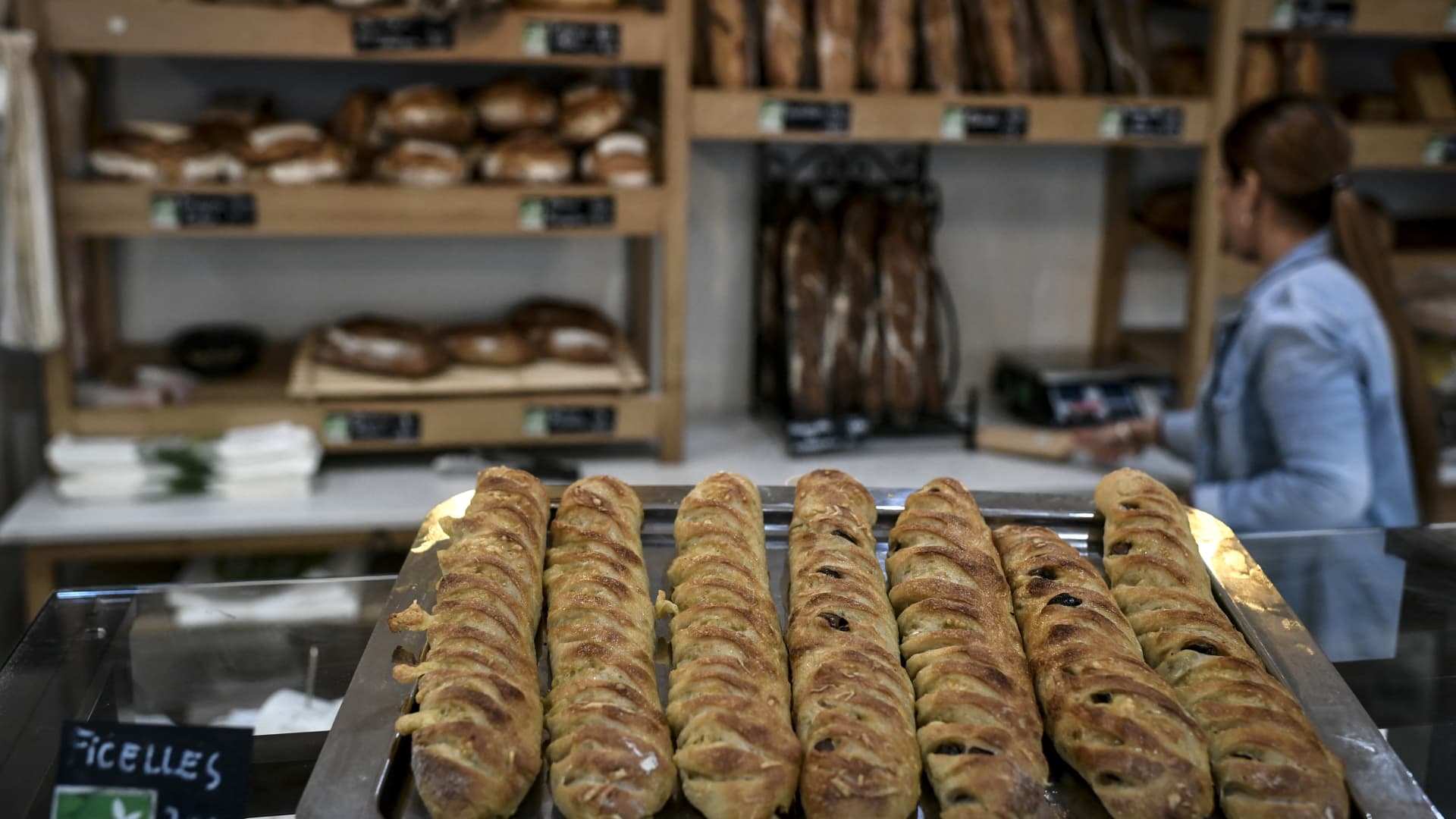French bakers allowed to renegotiate bills as high bills bring pain

Bread displayed at the organic Racynes bakery in Boulogne-Billancourt, outside Paris, in November 2022. Bakery owners have been struggling with higher crop and energy prices.
Stephane De Sakutin | Afp | Getty Images
Energy suppliers in France have agreed to allow bakeries to negotiate new payment plans for 2023 to avoid going out of business.
It comes amid warnings that the country’s iconic boulangeries face an existential threat due to the double hit of higher wheat and energy prices, with reports of some already shutting up shop.
French Finance Minister Bruno Le Maire said Tuesday that all energy suppliers had committed to “dissolve contracts when prices have risen prohibitively high and unsustainable for some bakeries,” according to a Reuters translation.
Contracts will be reviewed on a case by case basis depending on the owner’s situation and financial assistance may be offered, he added.
The government on Tuesday also announced plans to support the industry by allowing bakers to spread tax payments and suggested that further cash support for energy bills may follow.
In December, the French baguette was added to UNESCO’s Intangible Cultural Heritage list, cementing its status in daily life. Many of the firms facing collapse are small to medium-sized businesses serving rural communities.
Local bakers and grocery chains have attempted to keep the price of the staple steady as French inflation has soared to record highs.
Data published by Eurostat in September showed French bread prices were rising at the lowest rate in the European Union, up 8% year-on-year versus 18% on average.
While overall French inflation slowed slightly in December to 6.7%, food price inflation remained at 12.1% for a second consecutive month. Market prices for both crops and energy have cooled somewhat but remain subject to intense volatility due to the ongoing war in Ukraine.
The government intervention comes as President Emmanuel Macron prepares to announce controversial changes to the French pension system that could lead to widespread strikes.
—CNBC’s Charlotte Reed contributed to this story.